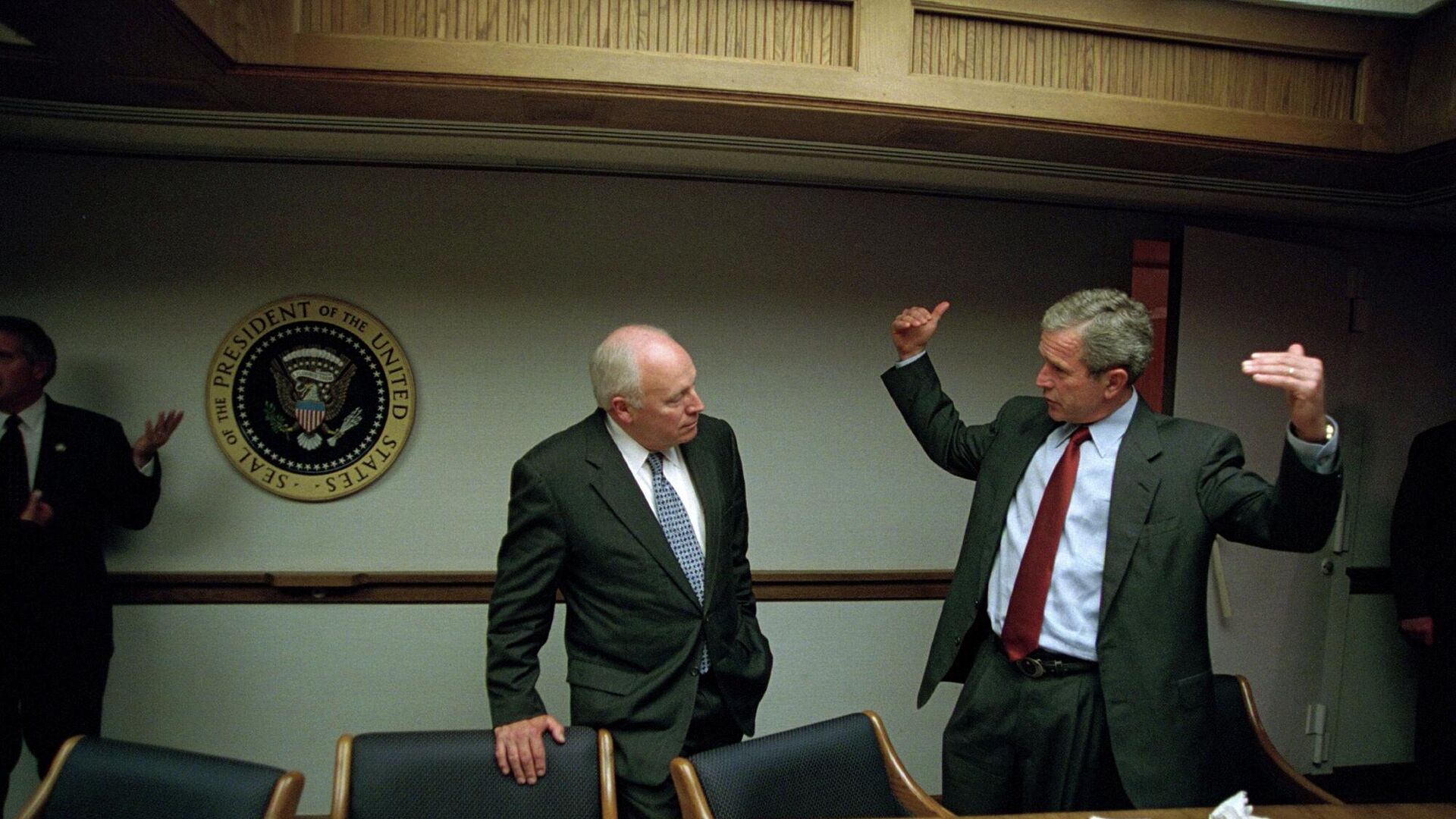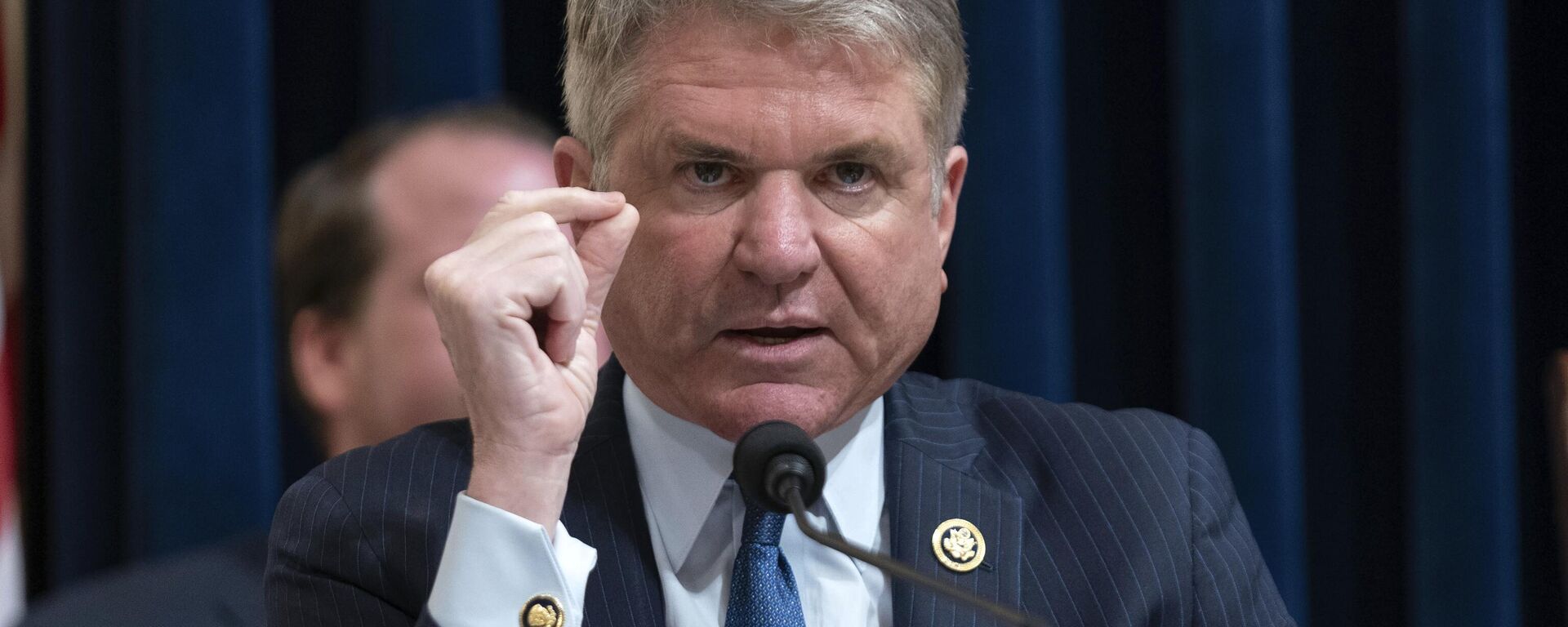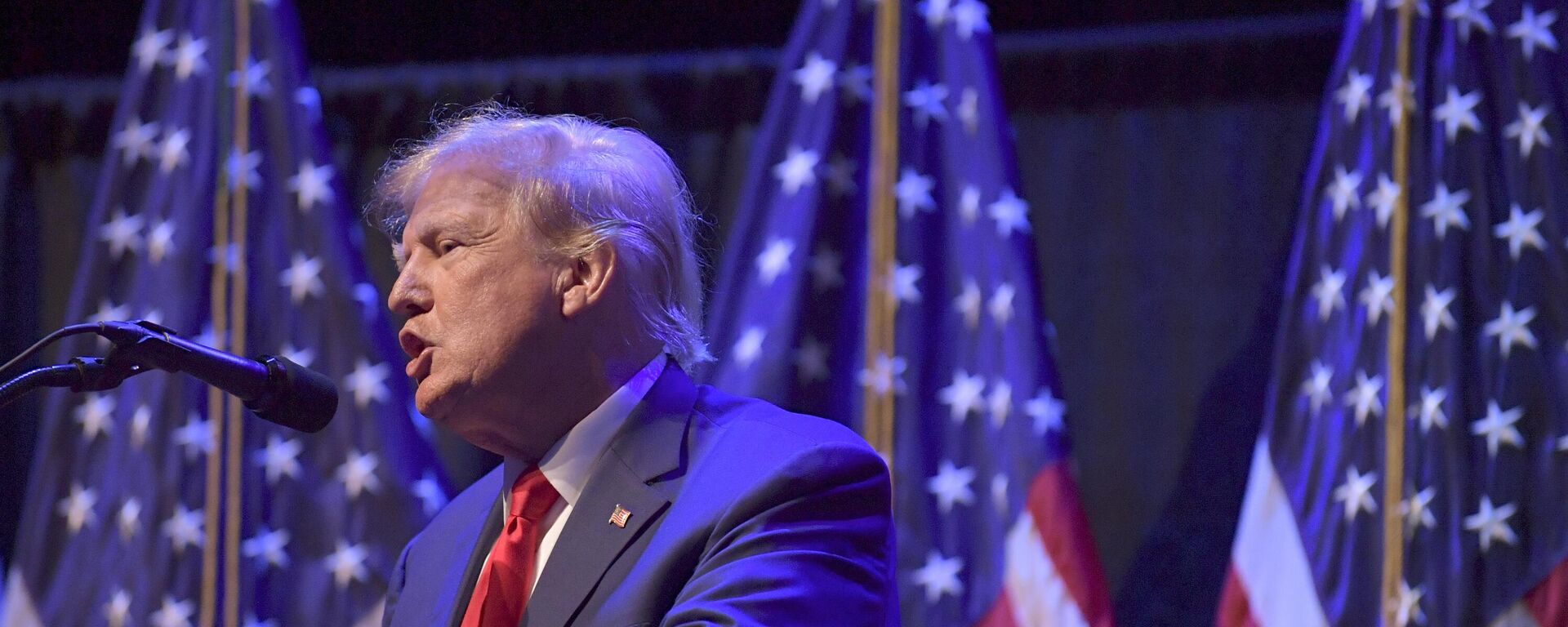https://sputnikglobe.com/20240424/ukraine-aid-bill-shows-establishment-still-runs-the-gop-1118082287.html
Ukraine Aid Bill Shows Establishment Still Runs the GOP
Ukraine Aid Bill Shows Establishment Still Runs the GOP
Sputnik International
After military aid passed through Congress with key help from Republicans, it is clear that the establishment still holds sway within the party.
2024-04-24T01:07+0000
2024-04-24T01:07+0000
2024-04-24T01:13+0000
analysis
donald trump
mike johnson
ukraine
israel
taiwan
republican party
2024 us presidential election
us
radio
https://cdn1.img.sputnikglobe.com/img/07e6/0b/09/1103955012_0:0:2000:1125_1920x0_80_0_0_1bdee7917f5a9f4e5b9740a3f5a2d5ca.jpg
While the Republican party has had a more populist appearance recently, arguably going back to the Tea Party days in the early 2010s, the recent passage of aid to Ukraine proves that the real power center in the party remains with the establishment neocon wing of the party.According to a recent poll, 61% of Republicans, including 55% who identify as “non-MAGA” Republicans, say they oppose sending further aid to Ukraine. While more than 50% of the Republican caucus voted against the bill, enough joined with House Democrats to pass the bill and critically, Speaker Johnson agreed to bring the bill to the floor, despite his previous criticisms of Ukraine aid.During and following the 2016 election, some neocons called themselves “Never-Trumpers” to voice their opposition to former President Donald Trump, and a few eventually even switched parties to the Democrats who have become more aggressive in their foreign policy.But ultimately, the old guard of the Republican party still manages to get what it wants through the control of key figures in the party.“That’s why you heard all those speeches from Republicans, like [Rep. Michael] McCaul (R-TX) in particular, it was ‘Churchill, Chamberlain, Chamberlain, Churchill, Ronald Reagan.’ It’s these cliches that they’ve been spouting decade after decade,” Szamuely explained.But it is not just the typical establishment politicians who worked to get the aid done when push came to shove. Johnson was until recently seen as part of the populist wing and even Trump came out to lend his support.During the primary campaign, Trump’s last remaining opponent, former UN ambassador Nikki Haley was extremely hawkish, framing the conflict in Ukraine as “a war about freedom and it’s one we have to win,” while consistently advocating for more military aid to Ukraine.In January, Trump seemingly sunk a deal between Republicans and Democrats that would’ve passed Ukraine aid in exchange for concession on the border by Democrats. He also previously claimed he would end the conflict in Ukraine within 24 hours of coming into office, presumably by shutting off aid to Ukraine.But in recent months he has been less committal about Ukraine and essentially endorsed the plan through proxy. Earlier this month, after Johnson promised to bring the Ukraine aid to a vote on the floor, Trump stood next to Johnson during a press conference at his private Mar-a-Largo club. “I stand with the speaker,” Trump said, adding that Johnson is “doing a very good job.”“I think that endorsement by Trump helped a number of Republicans to say, ‘Well, if Trump is for it, why not vote for it?’” Szamuely speculated.
https://sputnikglobe.com/20240422/sponsor-of-tiktok-ban--iran-palestine-sanctions-gets-1400-bump-in-aipac-donations-1118047522.html
https://sputnikglobe.com/20230328/conflict-in-ukraine-has-to-stop-now---former-us-president-trump-1108851168.html
ukraine
israel
taiwan
Sputnik International
feedback@sputniknews.com
+74956456601
MIA „Rossiya Segodnya“
2024
News
en_EN
Sputnik International
feedback@sputniknews.com
+74956456601
MIA „Rossiya Segodnya“
Sputnik International
feedback@sputniknews.com
+74956456601
MIA „Rossiya Segodnya“
ukraine aid, did trump support the ukraine aid, why did ukraine aid pass
ukraine aid, did trump support the ukraine aid, why did ukraine aid pass
Ukraine Aid Bill Shows Establishment Still Runs the GOP
01:07 GMT 24.04.2024 (Updated: 01:13 GMT 24.04.2024) On Tuesday, the US Senate approved a bill that included roughly $95 billion in aid for Ukraine, Israel, and Taiwan. Teh aid was previously stalled in the House of Representatives until Saturday when House Speaker Mike Johnson (R-LA) brought the bill to the floor despite his previous vocal opposition to further Ukraine aid.
While the Republican party has had a more populist appearance recently, arguably going back to the Tea Party days in the early 2010s, the recent passage of aid to Ukraine proves that the real power center in the party remains with the establishment neocon wing of the party.
According to a recent poll, 61% of Republicans, including 55% who identify as “non-MAGA” Republicans, say they oppose sending further aid to Ukraine. While more than 50% of the Republican caucus voted against the bill, enough joined with House Democrats to pass the bill and critically, Speaker Johnson agreed to bring the bill to the floor, despite his previous criticisms of Ukraine aid.
“We’ve been led to believe the Republican Party, it’s all MAGA, it’s America first,” senior research fellow at the Global Policy Institute and author George Szamuely told Sputnik’s Final Countdown on Tuesday. “Well, the people who still matter within the Republican Party… includes donors, includes the Republican Party establishment itself, [former President George W.] Bush, [former Senator John] McCain.”
During and following the 2016 election, some neocons called themselves “Never-Trumpers” to voice their opposition to former President Donald Trump, and a few eventually even switched parties to the Democrats who have become more aggressive in their foreign policy.
But ultimately, the old guard of the Republican party still manages to get what it wants through the control of key figures in the party.
“That’s why you heard all those speeches from Republicans, like [Rep. Michael] McCaul (R-TX) in particular, it was ‘Churchill, Chamberlain, Chamberlain, Churchill, Ronald Reagan.’ It’s these cliches that they’ve been spouting decade after decade,” Szamuely explained.
But it is not just the typical establishment politicians who worked to get the aid done when push came to shove. Johnson was until recently seen as part of the populist wing and even Trump came out to lend his support.
“Trump played a decisive role here. It was Trump who [had] endorsed Mike Johnson. Mike Johnson went to Mar-a-Lago and basically, Trump supported the package. He didn’t come out and say ‘I’m against it, I’m not gonna have anything to do with it. When I’m president, I’m going to bring the war to an end.’ The things that he was saying during the primary campaign,” Szamuely said.
During the primary campaign, Trump’s last remaining opponent, former UN ambassador Nikki Haley was extremely hawkish, framing the conflict in Ukraine as “a
war about freedom and it’s one we have to win,” while consistently advocating for more military aid to Ukraine.
In January, Trump seemingly sunk a deal between Republicans and Democrats that would’ve passed Ukraine aid in exchange for concession on the border by Democrats. He also previously claimed he would end the conflict in Ukraine within 24 hours of coming into office, presumably by shutting off aid to Ukraine.
But in recent months he has been less committal about Ukraine and essentially endorsed the plan through proxy. Earlier this month, after Johnson promised to bring the Ukraine aid to a vote on the floor, Trump stood next to Johnson during a press conference at his private Mar-a-Largo club. “I stand with the speaker,” Trump said, adding that Johnson is “doing a very good job.”
“I think that endorsement by Trump helped a number of Republicans to say, ‘Well, if Trump is for it, why not vote for it?’” Szamuely speculated.






